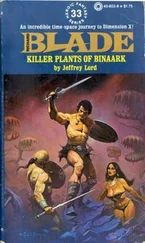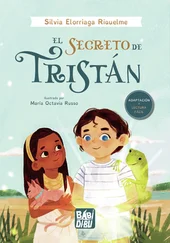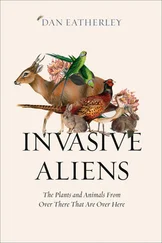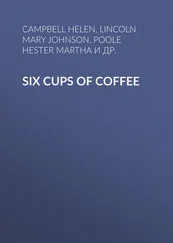When he reached Maloena, Ball was sitting on the stone steps in front of the house. He was waiting for him.
“Look here. The daughter of the marchioness has finally arrived.” Ball pointed at his watch. “And where hast thou been?”
“At the library,” Mateo said, showing both books.
“You’ve stolen another two?”
“No: I stole one, the other is for cover.”
“Did you leave a card again?”
“A red one.”
“I’m going to report you.”
“Me too, I’ll report you.”
“Why?”
“Atheism.”
They laughed.
“We have to bring those two sacks up. To your house,” says Ball.
“What are they?”
“Lime. Your dad brought it, in the truck. It’s for Simon.”
“For Uncle Simon? Ah, I see, Uncle Simon. . wait here, will you? I’ll leave the books and be back in a sec.”
“It’s late, Mateo. They’ve all been in the schoolyard since eight o’clock. We have to bring the ball, Mateo. The small one.”
Mateo rushed up the stairs. He brought the books to his room, but before leaving them on his desk he opened the photography book — Berson, Robert, Modern Photographs of the 20th Century (1920–30) , Brusque, Paris, 1932 — to page 96. Mateo knew that he had to open the book to page 96; in fact, he had stolen the book because he wanted the photograph that was on that page. He would look at the other photographs too; some he would even linger over. But he had stolen the book because he wanted the photograph on page 96. He had stolen a book that weighed a kilo just to steal a page. The photo was from 1927.
He left the books in his room, went back down to the street and helped Ball bring the sacks up. Then they got the ball, the small one, and walked to the school. It was warm.
Ball’s hair was dirty, both before and after the match. Mateo didn’t score any goals. Ball did: two. But Mateo made a pass that was incredible.
Today Iñes said it. There it is, she said. She saw the blue dragonfly first. And it was sunny, so the blue dragonfly looked like it was made of metal. Because metal looks a little gray and a little blue when it’s sunny. And that’s how the blue dragonfly was today, a little blue and a little gray. When it’s sunny metals become very bright, and glow the way light bulbs do, and the dragonfly didn’t glow, because it’s not a firefly.
The firefly is another insect; strange too, like the dragonfly, but very different. All insects are strange. I saw some fireflies in Lanta once. Lanta is a town that is full of grass and, at night, fireflies.
Afterwards we spent a long time looking at the blue dragonfly. Because it was in midair, but completely still. And that’s to be like a helicopter, Iñes said. Because a plane can’t do that but a helicopter can. And a trapeze artist can as well, on TV. But not a plane. And that’s an awesome thing dragonflies can do, to hang there, midair, completely still. Sometimes they move sideways too, just a bit. Quickly, but just a bit. And this is what in soccer is called “dribbling.” Uncle Abel says that. And Mateo too.
And we spent a long lime looking at the blue dragonfly, but we weren’t able to catch it. Because it was in the middle of a pond. In the air of course, flying, but in the middle of a pond. Although this pond wasn’t like the puddles in the street. Because the puddles in the street happen when it rains, and are always small, and you can walk on them, and the water is always below your shoes. But not in the dragonfly’s pond. The dragonfly’s pond is big, and more like a lake than like a puddle. But here in this town we don’t have a lake; lakes only appear on TV. And the water in them is clean, and the pond near the school over there is always dirty, and sometimes brown and sometimes green. But maybe it isn’t so dirty after all, because lots of insects live in it, and fish too, and no one can live in a dirty place. Mom often says that: No one can live in a dirty place. She says that when we spill on the kitchen table, sometimes with tomatoes and sometimes with other foods.
Afterwards the blue dragonfly disappeared. We didn’t catch it. I want to catch the blue dragonfly to become the most intelligent person in the world. That’s what happens when you catch the dragonfly; if you catch it you become the most intelligent person in the world. But I don’t want as much as that. I don’t want to be the most intelligent in the world. That’s asking a lot. But I do want to be intelligent. Like doctors. Architects too, I think, are intelligent. Piedad says that.
Today we caught a beetle, a red one. Well, it was part red and part black. And the black parts were bigger than the red parts. Otherwise it would have been a ladybug, and not a beetle.
Afterwards we looked in the book, to find out the name of the beetle. Because Iñes didn’t know it without looking. Sometimes Iñes knows the names of the insects by heart, but today she didn’t. Every name is in the book; and photograph as well. There are hundreds of photographs in the book. “Hundreds” is a word that means there are lots and lots of photographs. Uncle Simon says it. But then also there is a place there, in Lanta: Zientoetxe , which means “hundred houses.” And there aren’t all that many houses in Zientoetxe, only three or four, but they call it Zientoetxe. I like the beetles in the photographs most, because they don’t have hair. Bees are hairy. Grasshoppers aren’t.
And we find the red beetle in Iñes’ book, in the photographs. But we find two, both red and very very similar. Very very very very similar. And we can’t tell which is the one we caught, because their shells are both a bit red and mostly black, both the same. So we read the words, because Iñes’ book has photographs but words too. Each photograph comes with a few words that tell you who that insect is, what it does and what it eats. Sometimes the words say where it sleeps and how many eyes it has. Some insects have thousands of eyes. So they see lots, of course. And we only see the sun and the moon, but insects see Saturn and Pluto. And Mercury.
Iñes reads the words in the first photograph and says they call this beetle the “bombardier beetle.” And she explains why. She explains that if a frog or an iguana or a hippopotamus has the bad idea of trying to eat a bombardier beetle, the bombardier beetle will spray them with a blue gas. And it makes a big noise when it sprays the gas, and that’s why it’s called the bombardier beetle. And the frogs and the iguanas get frightened by the noise, so they lose interest in the beetle. Also Iñes said the hippopotamuses don’t get frightened by the noise because they are so big, but the gas the beetles spray is stinky, and hippopotamuses have big nostrils. That’s why they won’t eat bombardier beetles. Iñes told me all that without looking at the book.
And the other beetle in the book is called “rove beetle.” And it’s like the bombardier beetle, exactly the same, with a body that is a bit red but mostly black. And it sprays gas, like the bombardier beetle. But it only sprays it in the water, and the gas makes an eddy in the water, and this eddy pushes the beetle forward, and this is how the rove beetle swims, with eddies. That’s one style of swimming. There are many other styles; one of them is the crawl.
In the end Iñes doesn’t know which one ours is, the bombardier or the rove beetle. But we have to put a name on the corkboard so she draws lots for it. The bombardier beetle wins. Then Iñes goes silent for a while; and then she says “I’m sick of all these bombs everywhere.” Then she goes silent for another while and then what she writes on the corkboard isn’t “Bombardier Beetle”; what she writes on the corkboard is “Rove Beetle. Paederus littoralis .” Sometimes Iñes is crazy, because the bombardier beetle won the draw, but she put the other beetle’s name on the corkboard.
Читать дальше












